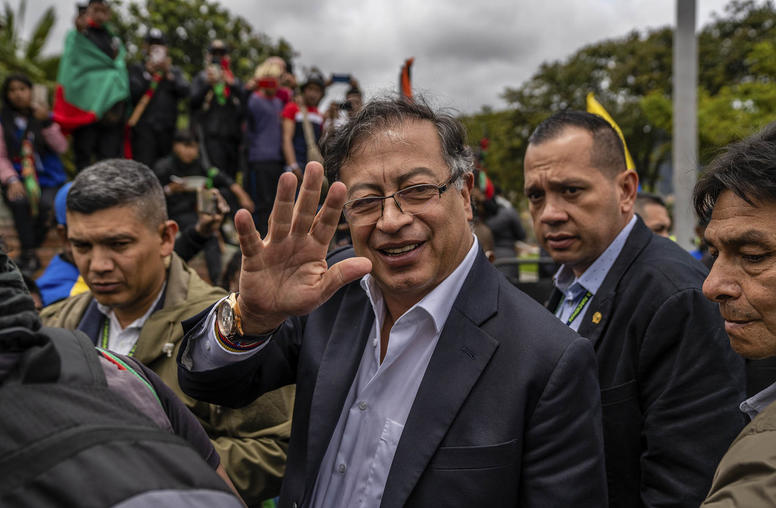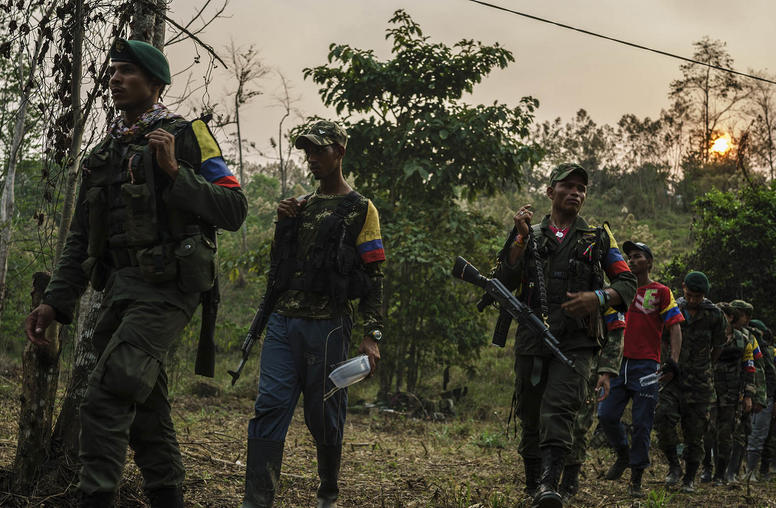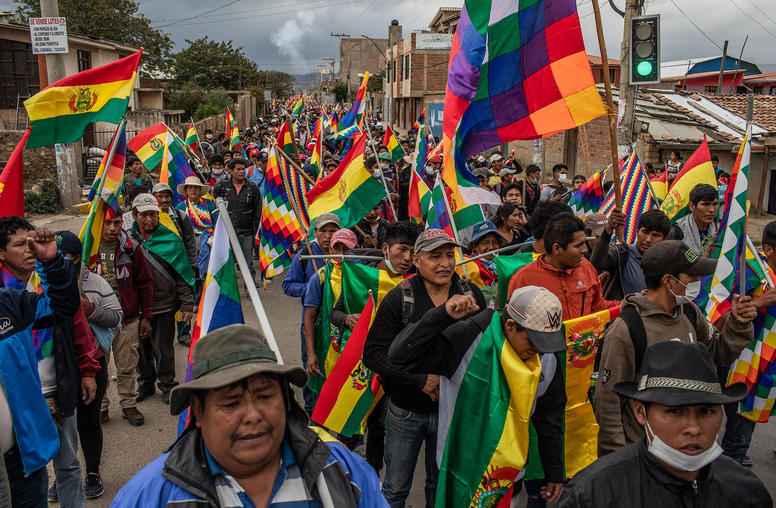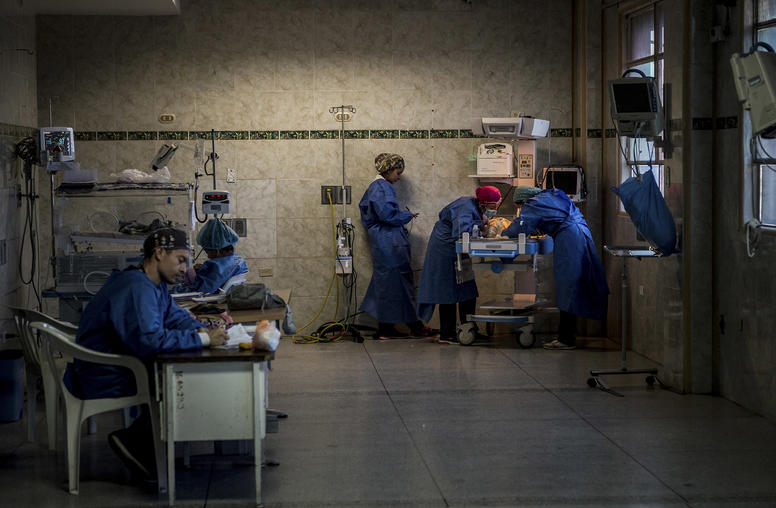Publications
Articles, publications, books, tools and multimedia features from the U.S. Institute of Peace provide the latest news, analysis, research findings, practitioner guides and reports, all related to the conflict zones and issues that are at the center of the Institute’s work to prevent and reduce violent conflict.

Colombia’s Renewed Peace Talks with ELN Rebels Provide Historic Opportunity
As part of its ambitious “Total Peace” agenda, the new Colombian government recently restarted peace talks with the National Liberation Army (ELN), marking the first new negotiations since January 2019. And while this cycle of talks adopted the same agenda and process framework as the previous efforts, current President Gustavo Petro appointed a diverse and broad negotiations team in the hopes of generating early momentum and support. Petro intends to advance on partial accords as quickly as possible — building up to a comprehensive agreement before his brief four-year term in office is complete.

Colombia’s New Administration Raises Hopes for ‘Total Peace’
Hopes for lasting peace in Colombia are soaring. Last month, Gustavo Petro and Francia Márquez prevailed in Colombia’s runoff presidential election and will lead the country’s first-ever progressive government, as president and vice president, respectively. Their historic victory culminates an electoral cycle marked by a resounding rejection of Colombia’s establishment elites. Petro’s proposals for what he has coined “Total Peace” offer an ambitious approach to negotiating with armed groups, implementing prior peace accords, and pursuing national unity amid debilitating socio-political polarization. The country stands before an undeniable opportunity to lay the foundation to end its six-decade conflict, even if subsequent governments will have to sustain these efforts to truly reap the long-term benefits.

Steve Hege on Colombia's Presidential Runoff Vote
With no establishment candidate left, Colombia's June 19 presidential runoff reflects voters' perception that "things [on] the ground are quite bleak" as the remaining candidates "promise significant degrees of change for Colombia and its relationship with the United States," says USIP’s Steve Hege.

Mounting Security Challenges Await Colombia’s Next President
In the first round of Colombia’s presidential elections, long-standing opposition leader Gustavo Petro and newly emerged outsider Rodolfo Hernández both handily defeated the conservative establishment candidate Federico Gutiérrez. The latter’s third-place finish signals Colombians’ resounding rejection of the country’s status quo and a rebuke of the political establishment and predominant elites.

Colombia: U.S. Aids Peace by Lifting ‘Terrorist’ Label From FARC
The U.S. government has opened opportunities to strengthen the implementation of the fragile 2016 peace accord and stem rising conflict in Colombia by ending its designation of the former Colombian guerrilla movement, FARC, as a terrorist group.

Protests in Colombia
Steve Hege, regional deputy director for Latin America, testified on July 1, 2021 at the Tom Lantos Human Rights Commission's hearing on "Protests in Colombia." His expert testimony as delivered is presented below.

Steve Hege on Venezuela’s Elections
Last weekend’s legislative elections proved to be “by no means fair or credible,” says USIP’s Steve Hege. To get the country back on track, Hege says a new U.S. administration will “have to work with the opposition and generate within the Venezuelan people some degree of belief in electoral politics.”

After a Year of Turmoil, Bolivia’s Election Offers Chance to Reduce Divides
Bolivians took part on Sunday in one of the country’s most decisive and historic general elections, in which the former governing party Movement Toward Socialism (MAS) and its candidate Luis Arce garnered a resounding victory. The vote culminated nearly 12 months of instability since elections in October 2019 led to allegations of fraud, followed by massive street protests and the departure of former President Evo Morales after nearly 14 years in power. Bolivia has not experienced a peaceful transition of power since 2002, but a window of opportunity has opened for the ethnically diverse Andean nation to emerge from the paralyzing polarization that has plagued it over the past years.

Venezuela: Could the Coronavirus Threat Be an Opportunity?
Helping Venezuela resolve its political crisis will be vital to containing the potentially catastrophic COVID-19 pandemic there. A truce in the country’s power struggle is urgent, and last week’s U.S. proposal for a transitional government offers useful ideas, even for a naturally skeptical governing regime. Advancing them would benefit from mediation, perhaps by the Vatican or the United Nations, and will require cooperation among the major powers—the United States, Russia and China—involved in the crisis. If Venezuelans and outsiders can join against the common human threat of coronavirus, that could lay foundations for an eventual political solution to the decade of turmoil that has brewed the hemisphere’s worst humanitarian disaster.

Steve Hege on Venezuela and Colombia During Coronavirus
After the U.S. indictment of Venezuelan President Nicolas Maduro, USIP’s Steve Hege looks at how the political crisis in Venezuela endangers vulnerable populations as well as neighboring Colombia amid the coronavirus pandemic.